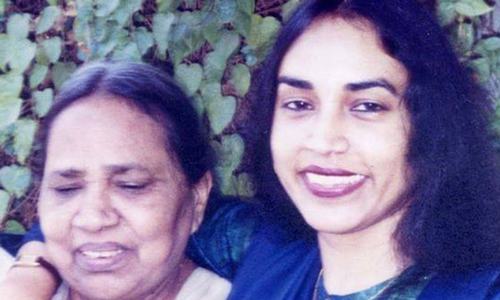The Supreme Court on Tuesday, while hearing a case pertaining to the 2013 murder of social worker Parween Rehman, admonished law enforcement agencies, saying they seemed "helpless before land and water mafias".
"This matter is turning into a mystery," remarked Justice Ijazul Ahsan, who was part of the bench. "Six years have gone by already, what are the law enforcement agencies doing?"
The three-member bench, headed by Justice Umar Ata Bandial, asked Babar Bakht Qureshi, who is heading the joint investigation team (JIT) probing the matter, about the findings of the case. Qureshi said that there were no major developments and urged the court to give the JIT more time to investigate. He told the bench that since the murder happened six years ago, the JIT could not obtain any data through geofencing.
Justice Ahsan told Qureshi that the JIT had been constituted because law enforcement agencies were not doing their job.
"What are law enforcement agencies doing since 2013? Are these mafias out of their reach?" asked Justice Ahsan.
"Mafias have killed people who are involved in social work," said Justice Bandial.
The court granted Qureshi two months to wrap up investigation and directed him to submit an interim report in three weeks.
Read: JIT sees ‘land mafia’ behind Perween Rehman’s murder
In June, it emerged that investigators were still trying to collect “basic forensic and circumstantial evidence” related to the murder as two joint investigation teams reportedly overlooked the basic things to resolve the mystery surrounding the high-profile killing.
This disclosure came in an interim report filed in the Supreme Court, where the slain activist’s sister Aquila Ismail moved an application for reinvestigation of the case by the Federal Investigation Agency.
Rehman, a social worker who devoted her life to the development of the impoverished neighbourhoods across the country, was shot dead near her office in Orangi Town in 2013.
The very next day, police killed a Taliban operative named Qari Bilal in an encounter and claimed he was the murderer, resulting in a closure of the case.
The Supreme Court of Pakistan in April 2014 ordered authorities to conduct a fresh probe into Parveen Rehman's murder after a judicial inquiry had revealed that police officers had manipulated the investigation.
A JIT report in 2018 had explained three possible theories behind the motive — the work of TTP or the jihadi elements against the vision of Rehman; second, the illegal water and hydrant mafia in the city; and lastly, the organised crime groups involved in land-grabbing because she was striving to help residents of Goth Abad Schemes to secure their land rights.














































